Angelica-Hazel Toutounji was just 33, juggling a career and two young children when a breast cancer diagnosis changed everything. Now, she’s urging young women to not put themselves last.
Think breast cancer is something only older women need to worry about? The reality is very different.
It’s the most common cancer in young Australian women and the leading cause of cancer death for women under 40. Around 1,000 young women are diagnosed every year.
Angelica-Hazel never thought she’d be one of them.
A women’s health and fertility nutritionist, she was in her early 30s, with a kindy kid and a toddler at home, when she was told she had stage 3 breast cancer.
She remembers lying in the MRI machine when the news sank in. “‘How am I going to tell my husband? How am I going to tell my kids?’ That was the main thing running through my head,” she says.
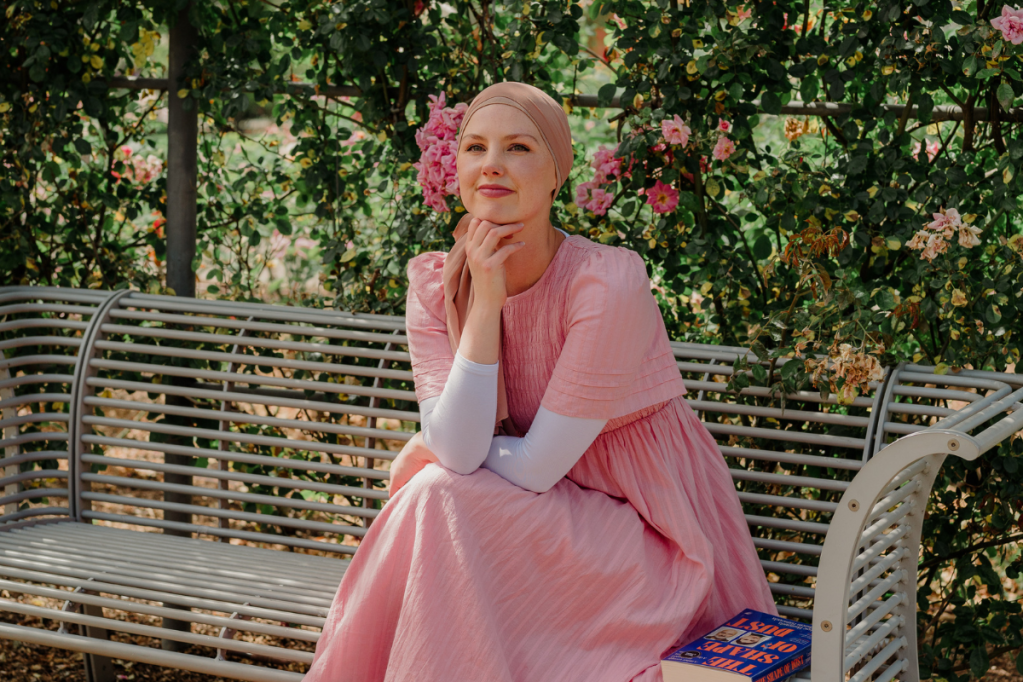
Motherhood through treatment
Angelica-Hazel says one of the hardest parts was being separated from her children.
“I’d never been away from my kids overnight before my first cancer surgery,” she says. “During my last surgery I was out of hospital within four hours, because I just wanted to see my babies.”
Facing surgery to remove her breast was confronting, but she says her focus was on survival for the sake of her kids.
“It was hard, but I felt so strongly that if it meant I could stay alive and watch them grow up, that was what mattered most. I told myself, you can take every limb from my body – just let me see my daughters grow up.”
She tried to keep explanations simple for her children. “I told them there was something bad in Mama’s booby making me sick, and I needed medicine to get better.”
Through it all, her husband was by her side. “He told me, you are the priority now – not the kids, not anything else. Without you, we don’t have a family.”
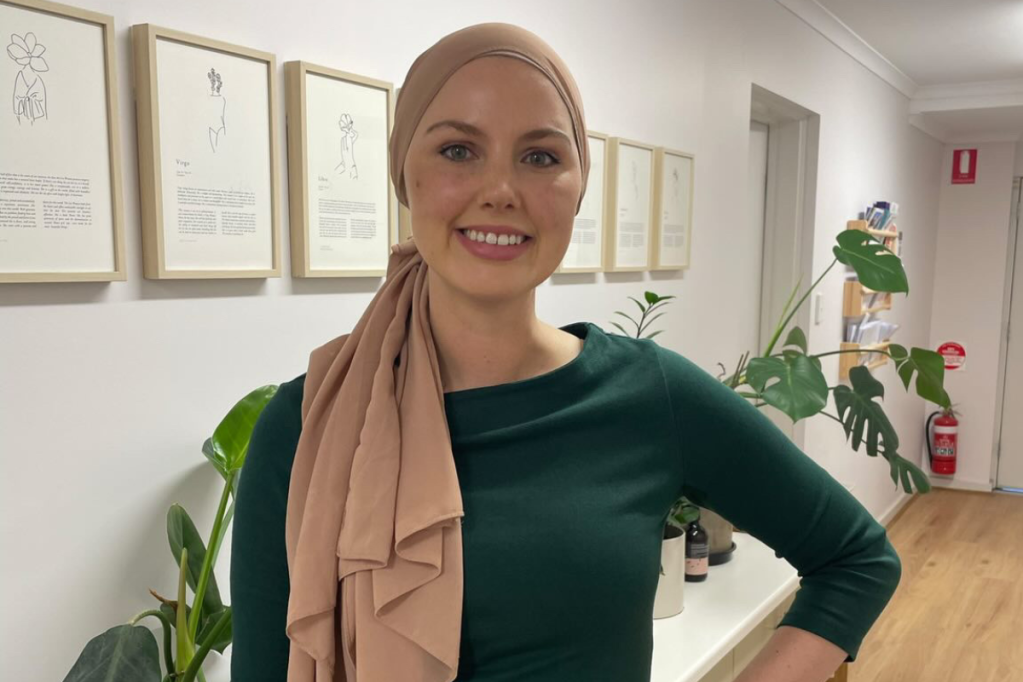
The toll of chemo
Chemo hit hard. Angelica-Hazel was given one of the strongest drugs, known to patients as the “Red Devil.”
“I remember sitting there while they pumped this bright red chemical into my veins. When I went to the bathroom afterwards my pee was bright red. It was terrifying.”
She also tried cold capping – a process where ice is applied to the scalp in an attempt to save hair follicles. “It was excruciating, and for me it didn’t work. My hair still came out in uneven clumps. Kids are resilient, but it was confronting for them. My eldest just asked when I was going to be fashionable again.”
Even when she looked like she was coping, Angelica-Hazel says the weight of it all was immense. “Just because someone carries it well doesn’t mean it’s not heavy.”
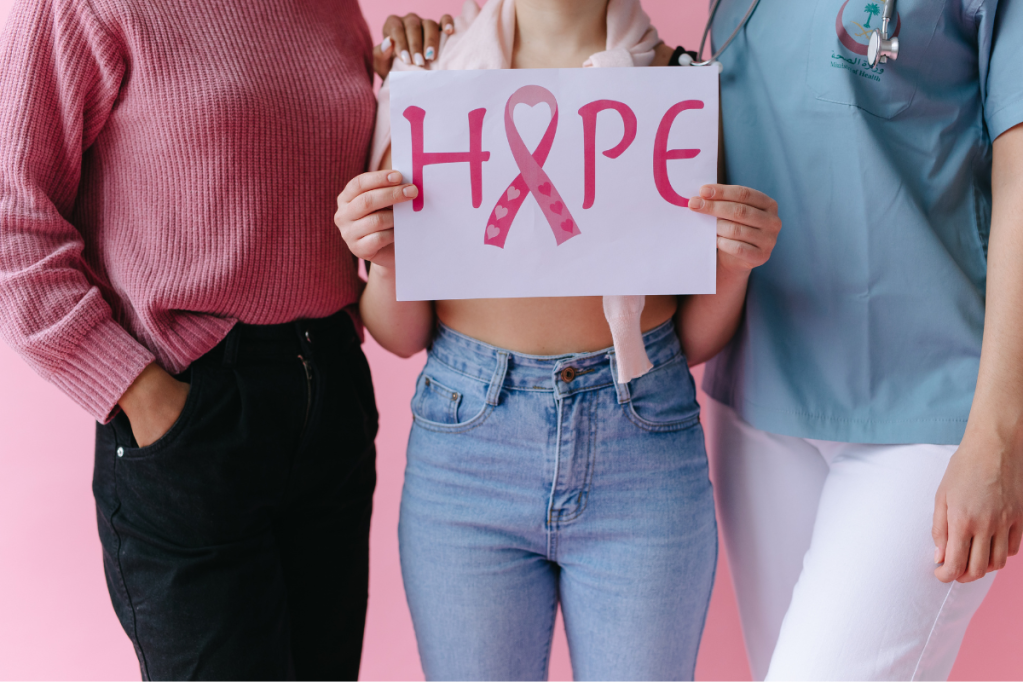
Taking back control
At her first oncology appointment, the specialist wrongly assumed she carried a genetic mutation and told her she would almost certainly lose her ovaries (she didn’t).
That experience changed how Angelica-Hazel approached her care. “I respect medical professionals. I believe in science. But I also believe in being treated like a whole person.”
She built her own support team – oncologists and surgeons she trusted, but also therapies that helped her cope physically and emotionally. That included a breast cancer exercise and meditation program, plus sessions with a psychologist, naturopath and an “amazing” acupuncturist who “really helped with nausea”.
On mornings when Angelica-Hazel was feeling particularly awful, she’d stand in front of the mirror and tell herself, ‘today’s going to be a good day’. “Some days it worked, some days it didn’t, but it gave me a fighting chance,” she says.
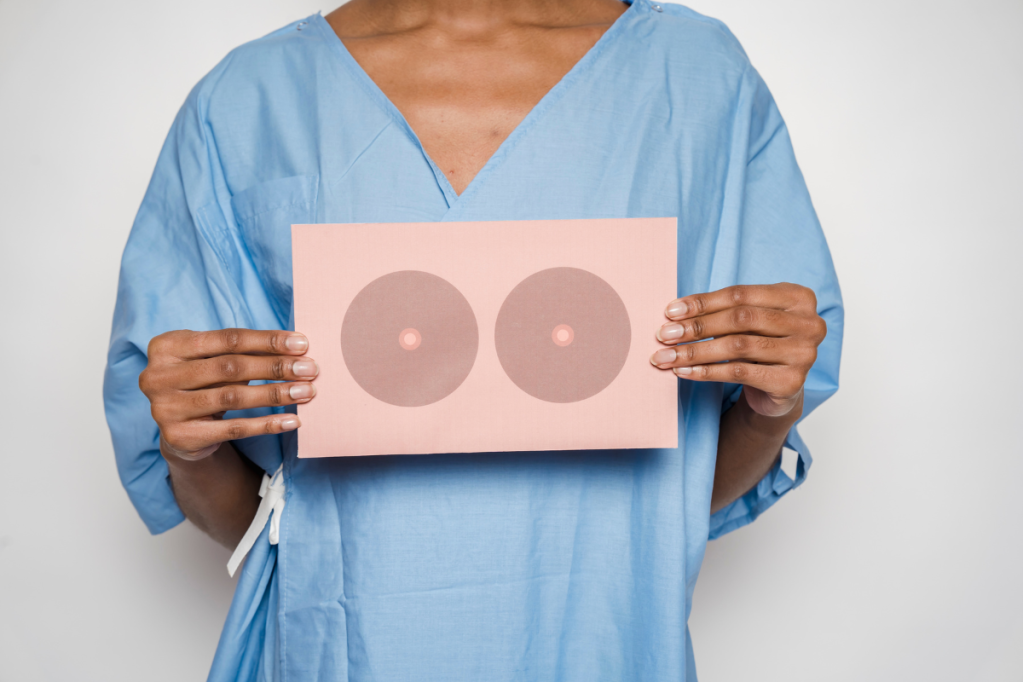
Her message to other young women
Angelica-Hazel wants women to understand that breast cancer can happen at any age.
She thought she was low risk – she’d had two kids before 35, breastfed, exercised and lived a healthy lifestyle. But even with all those protective factors, she still found herself in a fight for her life.
“I know women who were diagnosed during pregnancy or while breastfeeding – the warning signs need to be talked about more,” she says.
Her advice to women is: “Don’t put yourself last.”
“If something feels wrong, don’t put it off – and if you feel dismissed, push for answers. You know your body better than anyone, and your health is your greatest wealth.”
Sharing her story has already saved lives. “If it helps one person, it’s worth it.” One of her clients found stage 0 breast cancer after hearing Angelica-Hazel speak and was able to start treatment straight away.
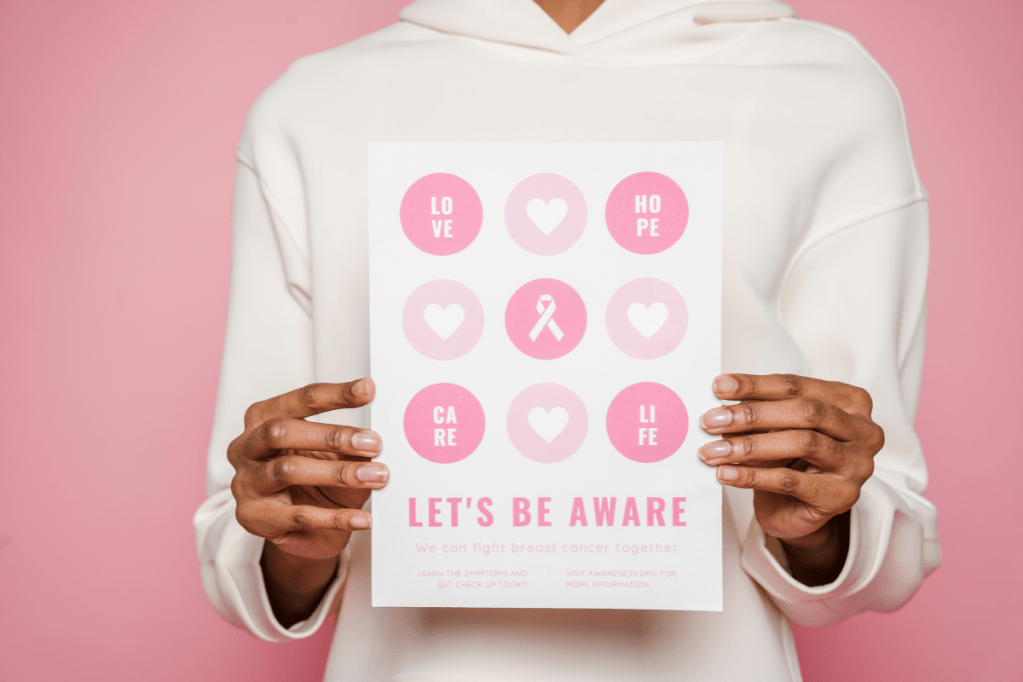
Why research and awareness matter
For Angelica-Hazel, survival also comes down to something bigger: research.
She is now a proud ambassador for The Hospital Research Foundation, a role she took on because research quite literally saved her life.
“I had a type of cancer that not long ago didn’t have good outcomes. If it wasn’t for breakthrough drugs like Herceptin, my prognosis might have been very different. That’s why I’m here – because research gave me a chance.”
Her experience fuels her push for awareness too, especially this October during Breast Cancer Awareness Month.
Why aren’t younger women offered breast screening?
Ever wondered why routine mammograms start at 40, with the main target group set at 50-74? Yes, breast cancer is the most common cancer in young women – but compared to older women it’s still far less common, so mass screening efforts are directed to where there is most benefit.
There are other important factors too. The cancers that appear in younger women are often faster growing and can develop between two-yearly screens. Pregnancy and breastfeeding cause natural changes that can trigger unnecessary call-backs for further testing. And younger women also tend to have denser breast tissue, which makes scans harder to interpret.
But breast cancer can still happen under 40 – and does.
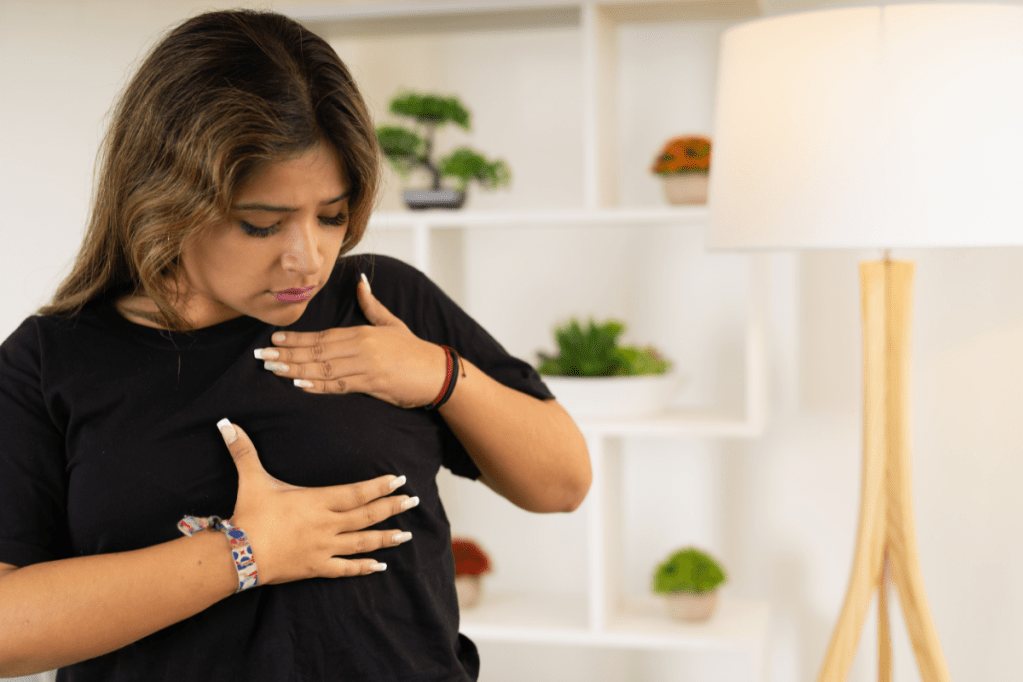
Why you need to ‘know your normal’
Angelica-Hazel says “knowing your normal” is the best tool you have. “Check yourself regularly. If something feels different, don’t ignore it.” For the under 40s, mammograms are used to investigate symptoms, rather than just regular screening.
Changes to look out for include:
- A lump, thickening or swelling in the breast
- Changes to the skin such as dimpling, puckering or redness
- A newly inverted nipple or unusual discharge
- Persistent pain in one spot
- Swollen lymph nodes around the armpit
How to support a friend with cancer
Angelica-Hazel says one of the hardest parts of her diagnosis wasn’t just treatment – it was the silence from some people in her life.
“A few friends just ghosted me. There’s never a perfect thing to say, but disappearing hurts. What matters most is just being there.”
One of the sweetest gestures came from an interstate friend who sent her a diary with all her treatment dates marked, and on each one she had written “you did it.”
“I would never reach out and say, ‘I’m struggling, can you help me?’ But when friends or family dropped off food, flowers, or just showed up to do the vacuuming, it made me feel so held.”
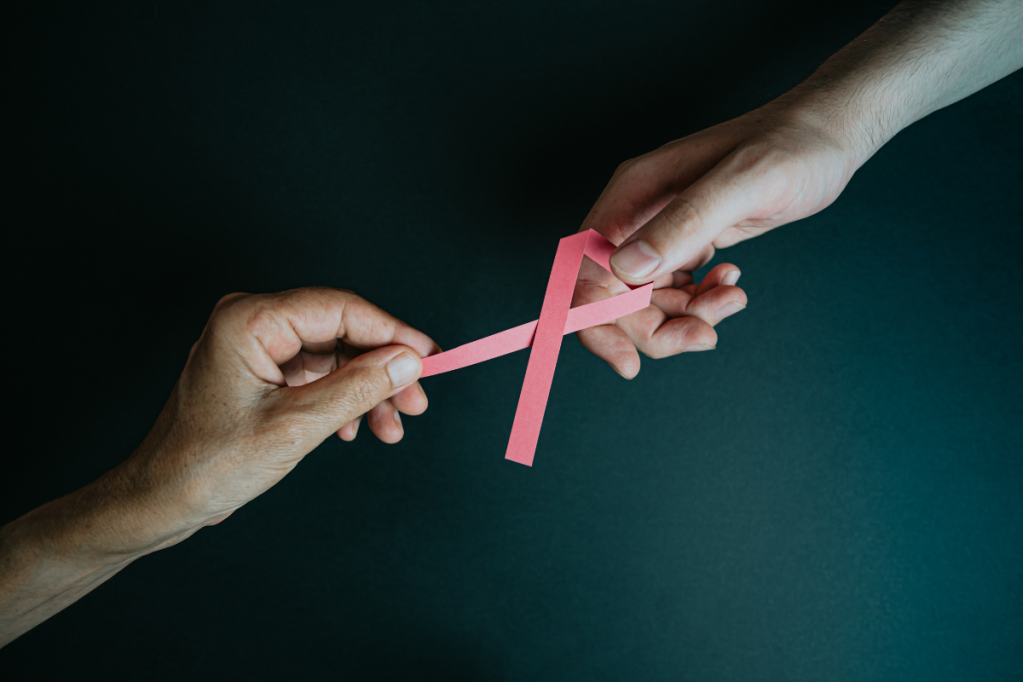
Living with what comes next
Angelica-Hazel’s doctors told her she had achieved a complete pathological response, but they haven’t used the word “remission.” She’s still monitored regularly – and she’s still learning how to live with the emotional weight cancer leaves behind.
“Cancer changed everything. I see the world very differently now. I feel things more deeply, I get emotional, I feel grateful. If I hear about someone else being sick, it hits me harder than before. I want to live a big, beautiful life, and I want to have that ripple effect of doing good and being kind.”
Find out more about breast cancer awareness in South Australia here. For broader information, check out these sites here and here.

















